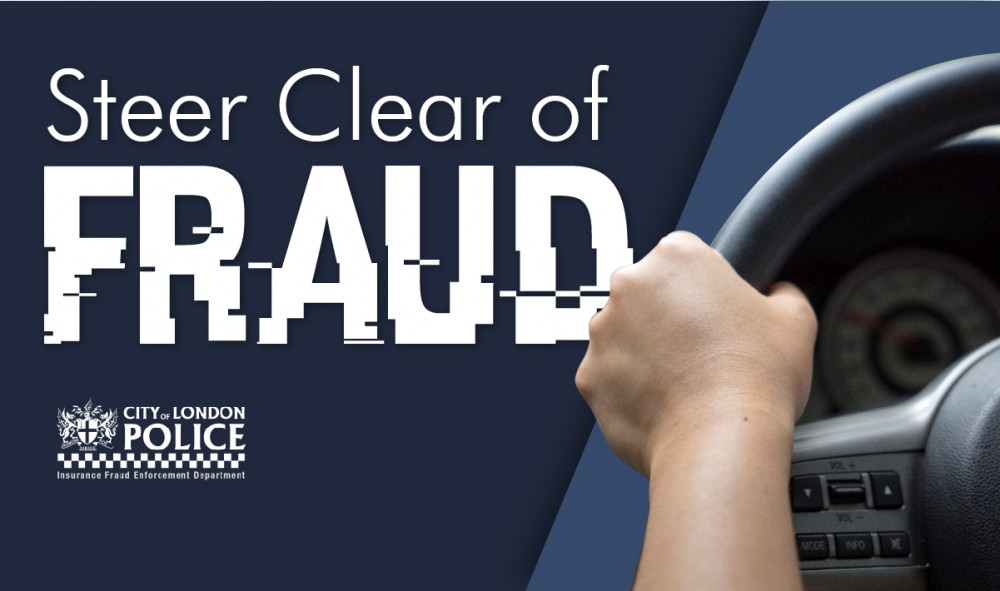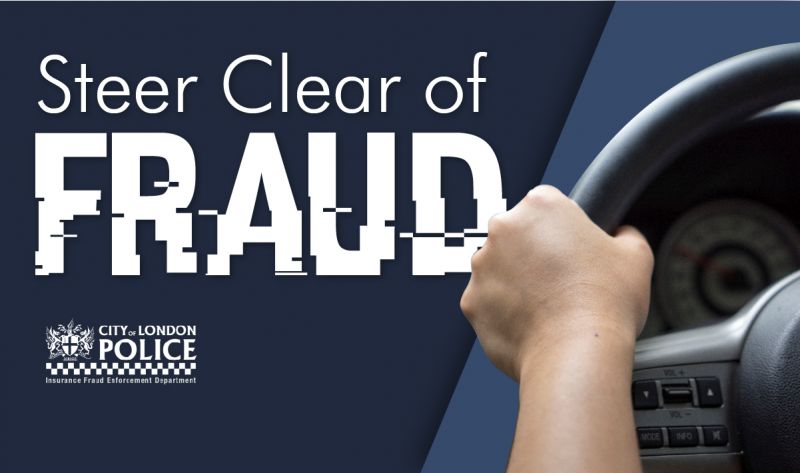Ticket fraud warning as venues prepare to re-open
Action Fraud are urging people to be wary of fraudsters selling fake or non-existent tickets to events.
The reported losses for victims aged 17-24 total £164, 993

New figures from the City of London Police’s Insurance Fraud Enforcement Department (IFED) has revealed that 17-24 year olds are most likely* to fall victim to fraudsters selling fake care insurance, also known as ‘ghost brokers’.
From November 2014 – July 2018, the majority of reports received by Action Fraud, the national fraud and cyber crime centre, hosted by the City of London Police, have come from victims aged 17-24**. The reported losses for these victims total £164, 993, with each individual losing on average £912.
Figures show that 17-24 year olds are 26% more likely to fall victim to ghost broking compared to 25-34 year olds and 197% more likely compared to 35-44 year olds***.
On top of this, the figures reveal that 17-24 year olds have lost £47,935 more to ghost brokers compared to 25-34 year olds and £128,743 more compared to 35-44 year olds.
Ghost broking is the name given to a tactic used by fraudsters who sell fraudulent car insurance by a number of different methods. Further information about this type of fraud, including the various consequences and advice on how to spot the signs of a ghost broker, can be found on IFED’s dedicated ghost broking webpage.
To help raise awareness of ghost broking among this age group and reduce the number of those falling victim, IFED have launched a targeted national awareness today (Monday 17 September 2018) – a second phase of their original ‘Steer Clear of Fraud’ campaign from February 2018.
Why are young people targeted?
Of those who fall within this age bracket, a number of them will be students and will be vulnerable to approaches from ghost brokers.
Students typically don’t have much money at this stage of their lives, and coupled with the high insurance premiums they face, they are prime targets for ghost brokers. They may also be more susceptible to the cheap, alluring prices that ghost brokers offer. On top of this, some young people may not yet have a complete understanding of the insurance industry and how to insure their car legitimately. Given this, and the worrying new figures, IFED are encouraging young people, especially students, to be wary of heavily discounted prices on the internet or cheap prices they’re offered directly for car insurance, as they may well be ghost brokers.
Informing students about ghost broking
During the campaign, IFED are sharing information nationally about ghost broking, and as part of this, they are partnering with Merseyside Police to actively engage with students studying at the various universities within Liverpool. IFED officers, along with Merseyside Police officers, are due to attend a welcome event for new students at Liverpool John Moore University, as part of Fresher’s week. They will also be joining up with fellow City of London Police officers in attending one of the welcome events happening at City, University of London and London Metropolitan University.
At these events, IFED officers will be engaging with students and handing out leaflets about ghost broking, which outlines what it is, how to spot the signs and how to avoid falling victim.
On top of this, IFED will be sending out messages throughout the campaign on social media using the hashtag #SteerClearOfFraud to advise those within this age group how they can protect themselves. People will also be directed to IFED’s dedicated ghost broking page on their website, which contains both information about this type of fraud and a PDF download of the ghost broking leaflet.
If you have or think you have been a victim of ghost broking, get in touch with IFED via phone on 0207 164 8200 or email at IFEDIntel@cityoflondon.pnn.police.uk. Alternatively, report it to Action Fraud by calling 0300 123 2040.
You can also report to the IFB’s Cheatline by completing their online form or by calling anonymously and in confidence on 0800 422 0421.

Detective Superintendent Peter Ratcliffe of the City of London Police’s Economic Crime Directorate, said:
“Falling victim to ghost broking can have a devastating effect on people’s lives, and this is especially the case for university students. It will impact them financially, at an important stage of their lives, and it could also affect their education and ability to travel.
“While offers of cheap car insurance may be tempting for students, purchasing car insurance through a ghost broker will end up costing you far more in the long run – both in terms of money and your licence.”
Case study, Paul Jones, 18:
In November 2017, Paul passed his driving test and began to search for car insurance. Paul had been searching various insurance companies online and as he’d enabled ‘cookies’, a number of related posts were appearing on his social media feeds about car insurance.
As a result, Paul came into contact with a person on Instagram who claimed they were an insurance broker and could get Paul cheap cover because they had exclusive contact with a reputable insurance company. At the time, Paul was under a great deal of stress as he’d recently undergone surgery and was going through university interviews and A-Level examinations. With the broker offering cheap car insurance, hassle free, Paul decided to proceed with them.
After Paul had provided various details to the broker, including his name, address, driving licence, he was sent screenshots of a policy document with his details – though only part of the policy could be viewed. A few weeks later, Paul then received his full policy documents in the post, which he checked and the details were correct.
With the belief that he had legitimate insurance, Paul started driving and was involved in a minor collision. However, when he contacted the insurer about his insurance they claimed it had been cancelled as there were a number of discrepancies in the details provided when the policy had originally been taken out.
Paul went through the policy with staff from the insurer and Paul identified various details that were incorrect. For example, in the policy it stated that Paul was a homeowner, a student nurse and had bought the car several years ago.
All of this was incorrect, and had been inputted by the broker when they incepted the policy. The reason the broker would have done this would be to bring to the premium down. Paul tried to contact the broker, but the broker had blocked his number and was no longer on Instagram. In total, Paul lost £2,200.
After falling victim to the fraud, Paul described how dreadful the experience had been:
“I couldn’t believe what I was hearing when staff from DLG told me that my insurance was void and read out details from my policy that were completely wrong.
“It’s a horrible feeling and it’s really impacted on my ability to get future car insurance as companies are now offering me even higher prices than before.”
“I think a lack of experience and knowledge of the insurance industry was a big factor in why I was fooled. It’s important that people around my age be wary of offers of cheap prices for car insurance and always carry out the proper checks to ensure it’s legit.”